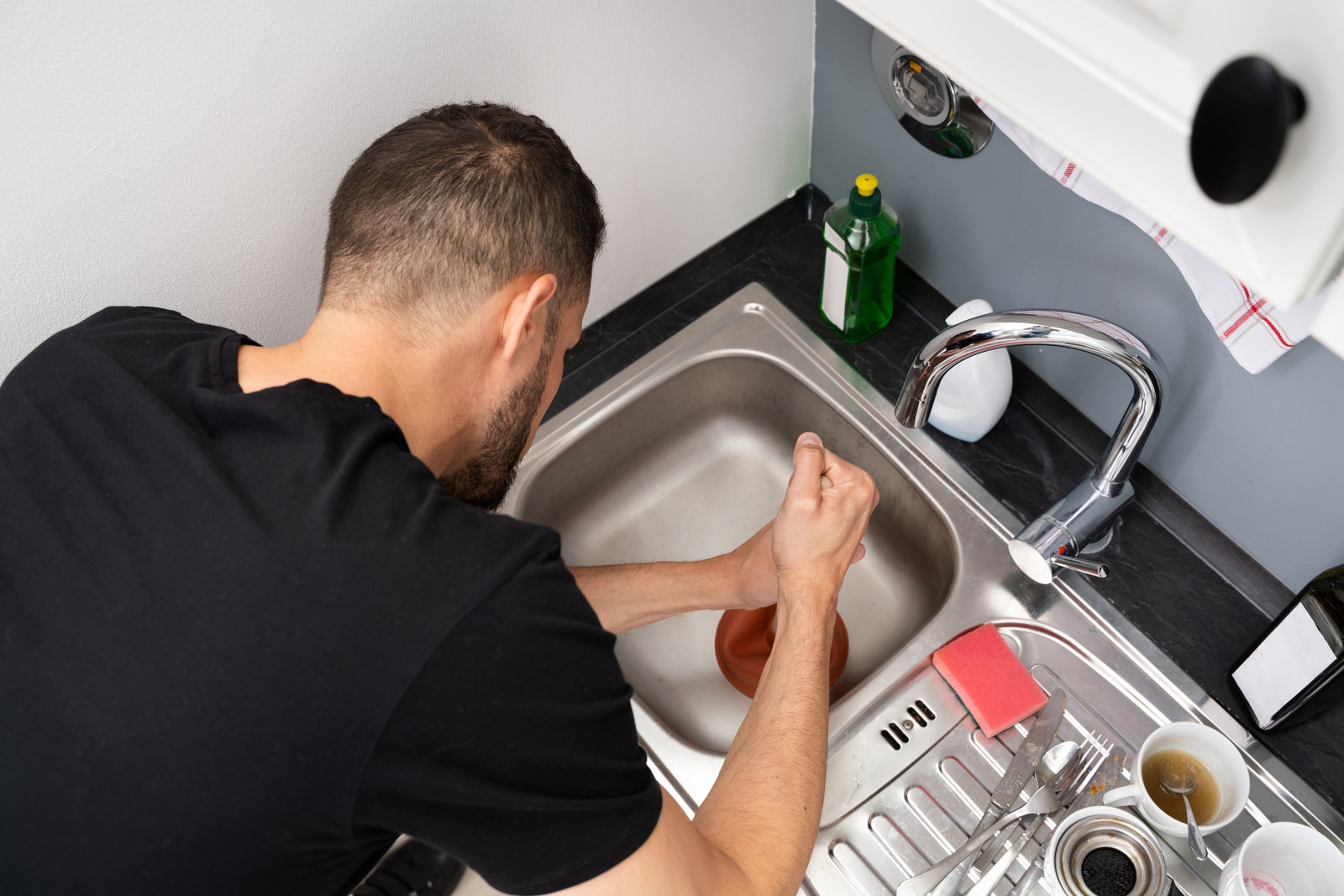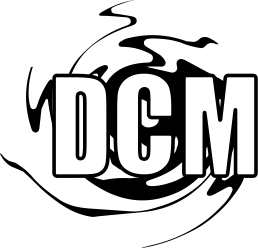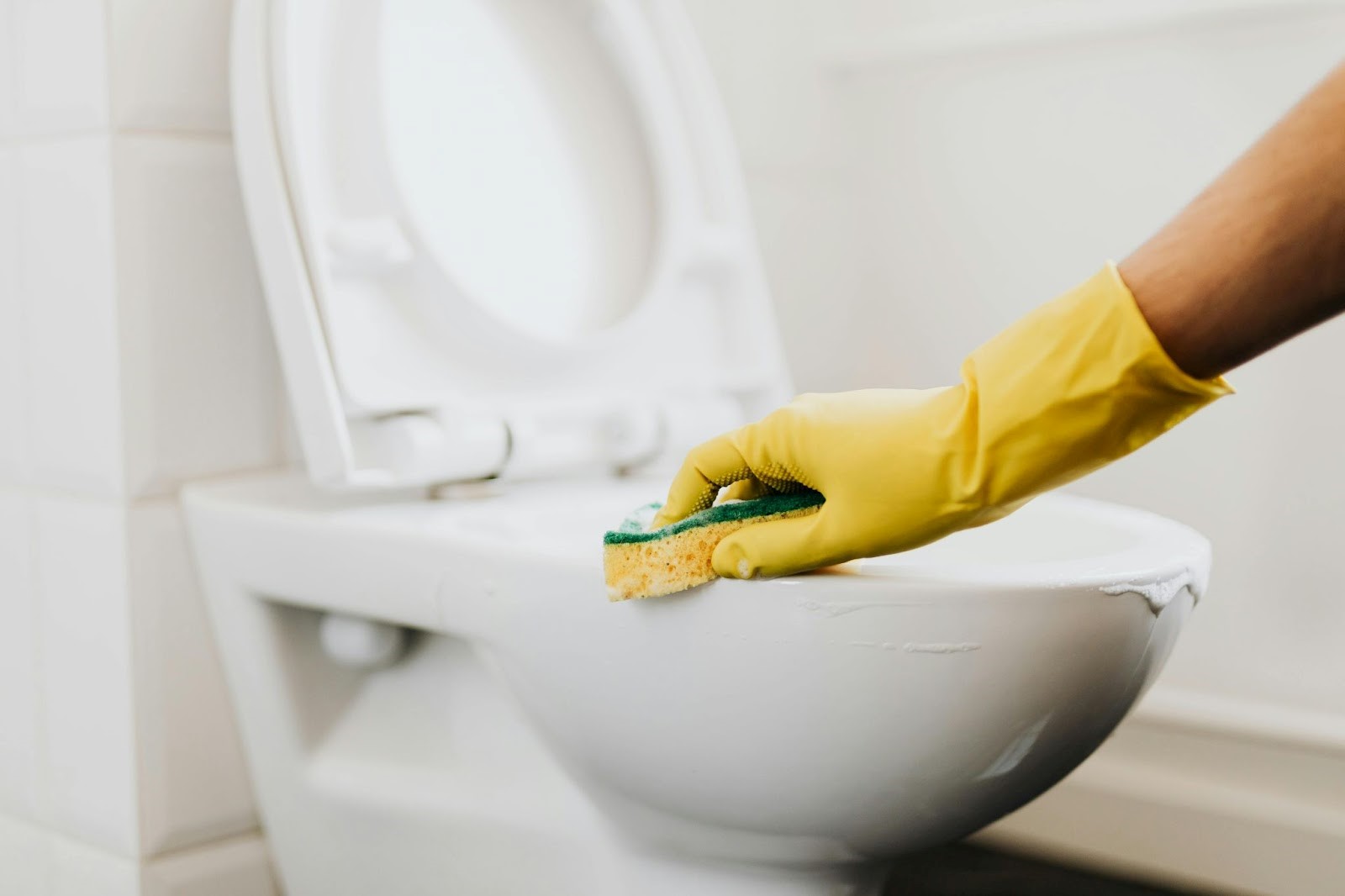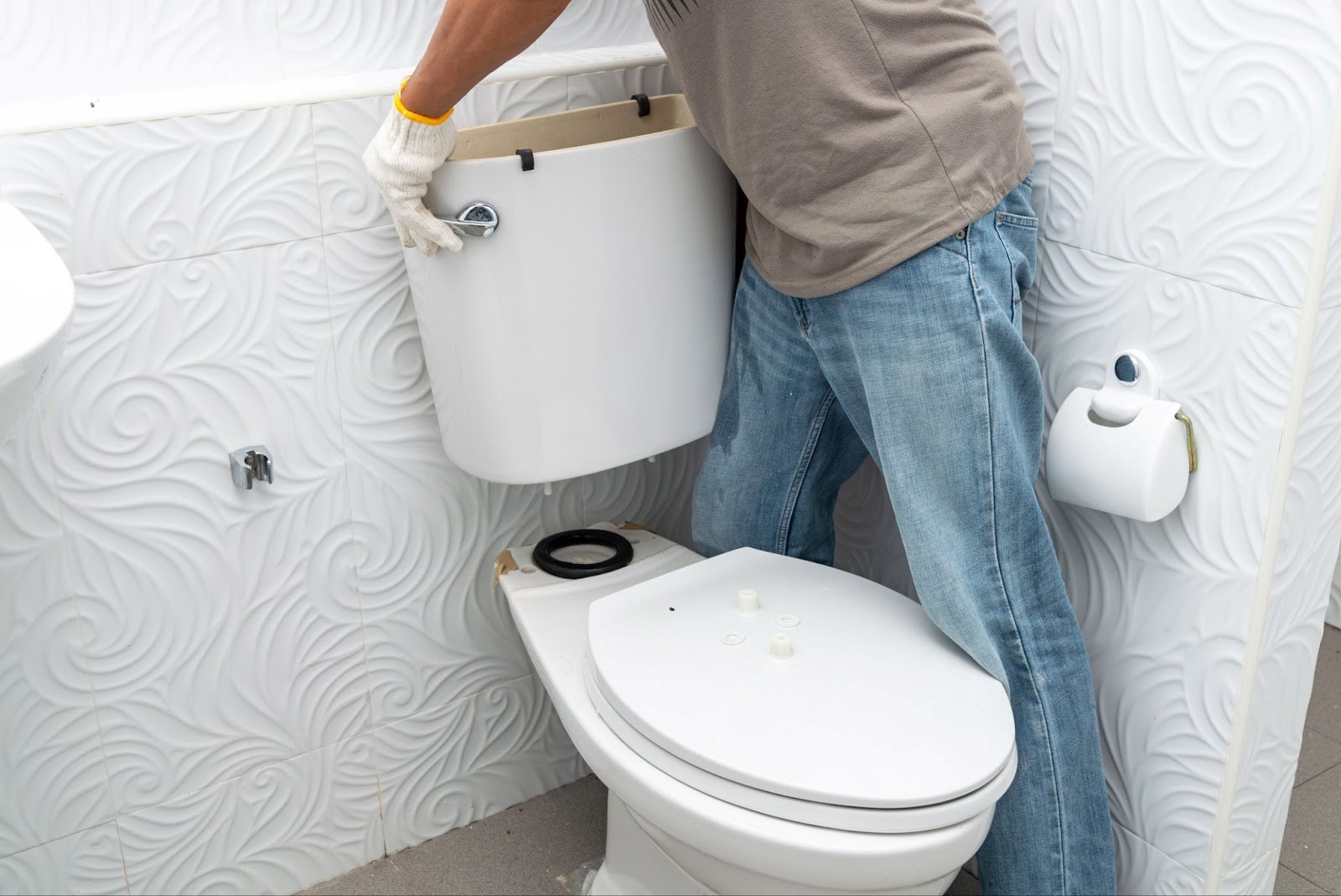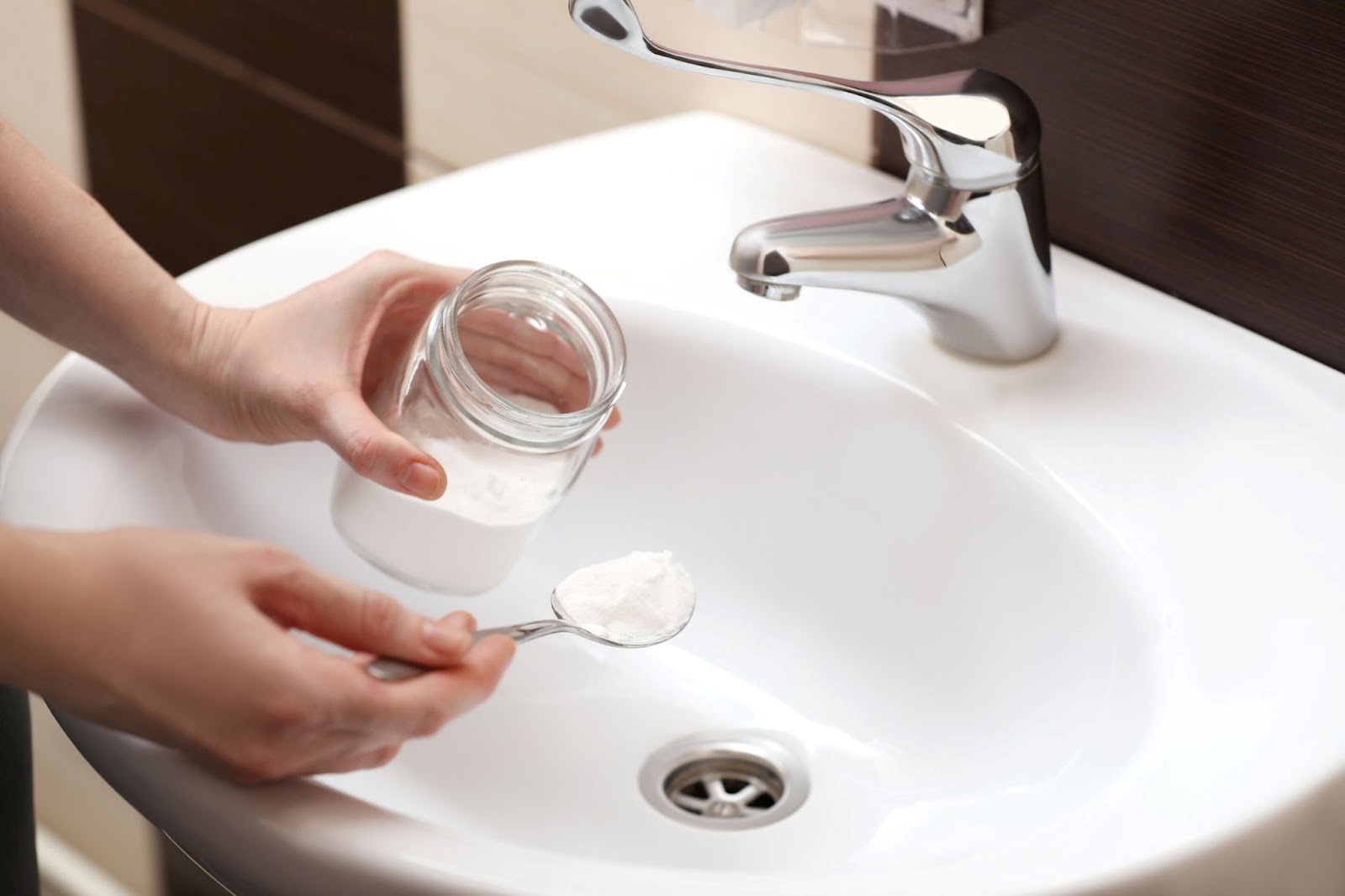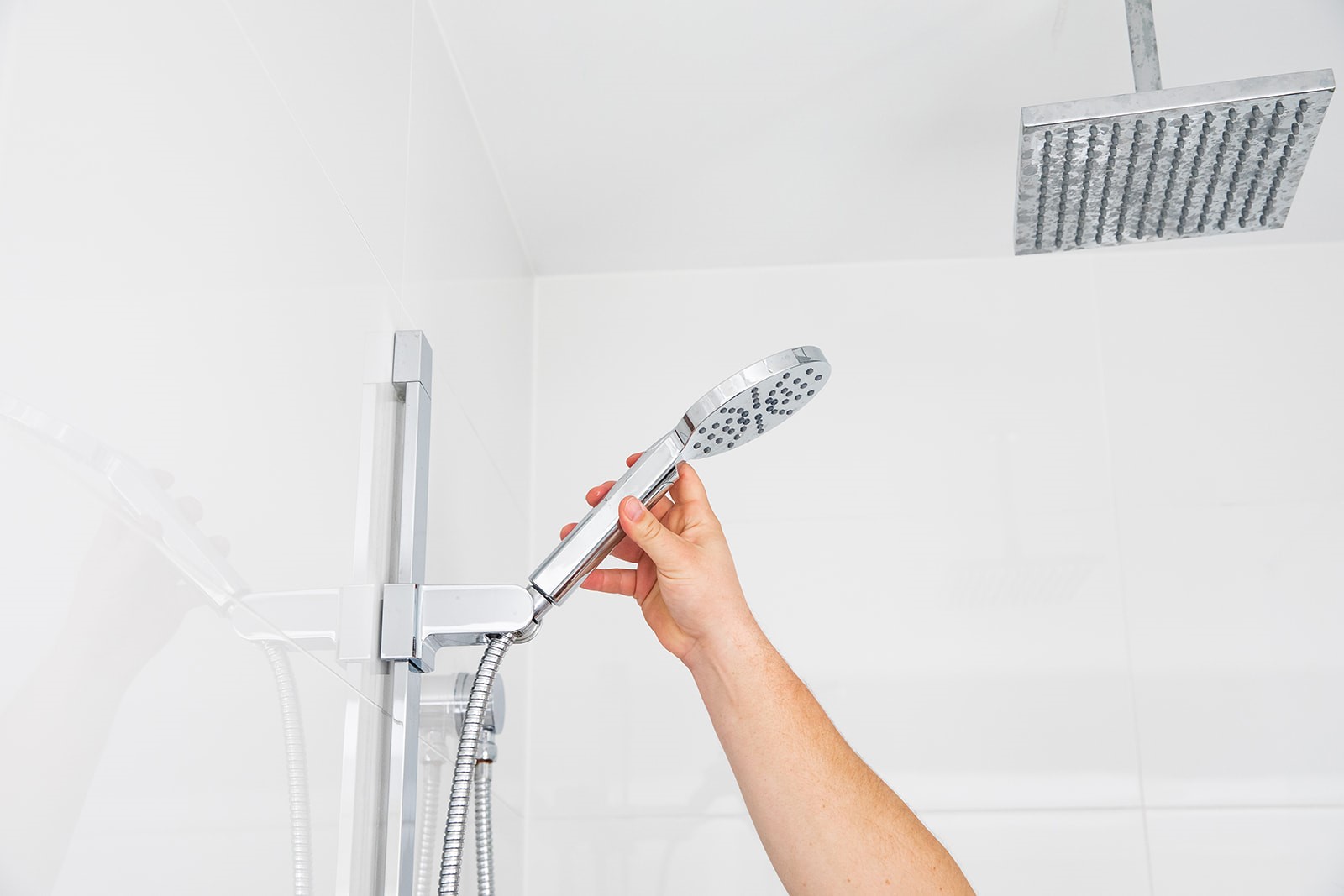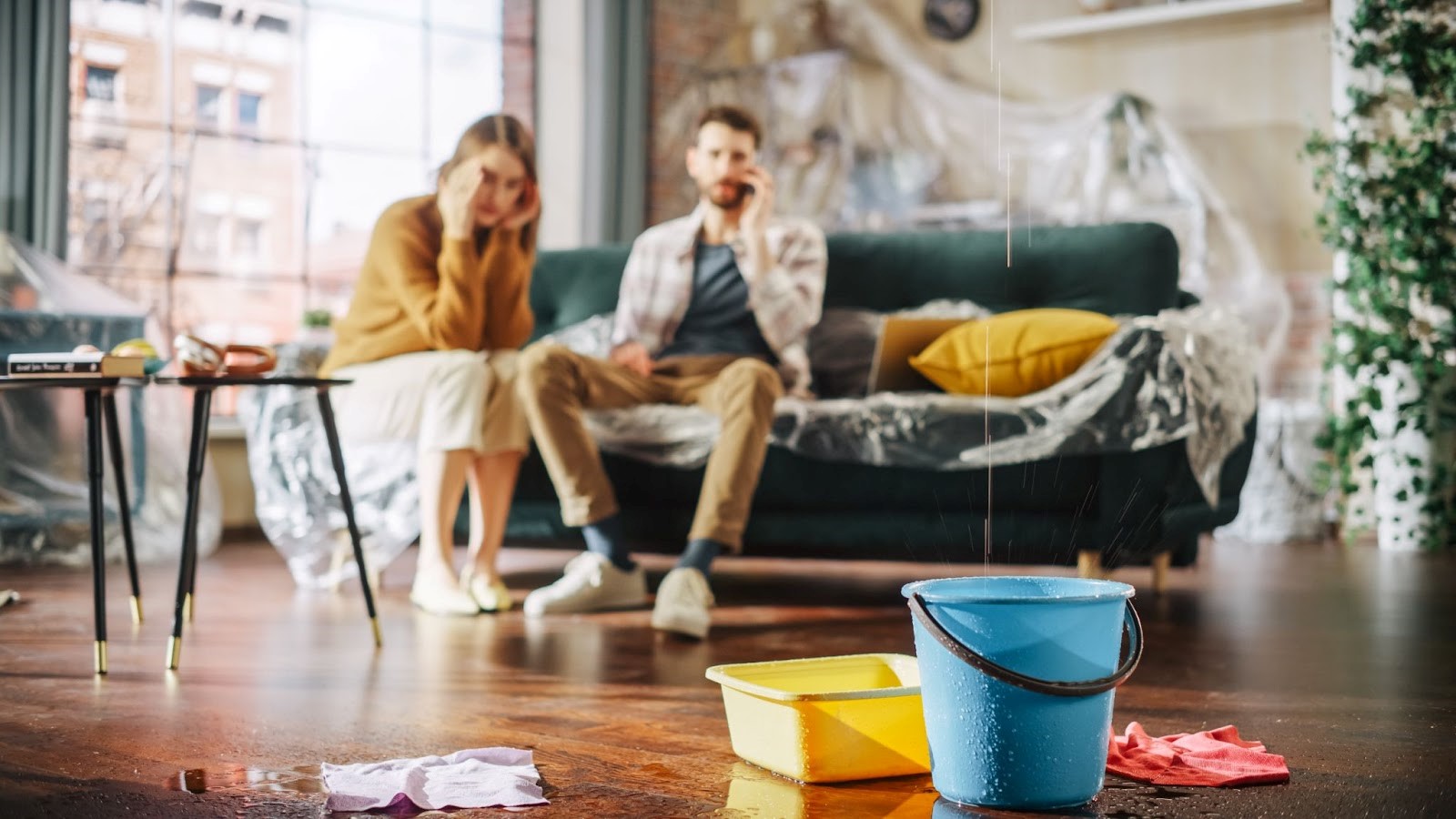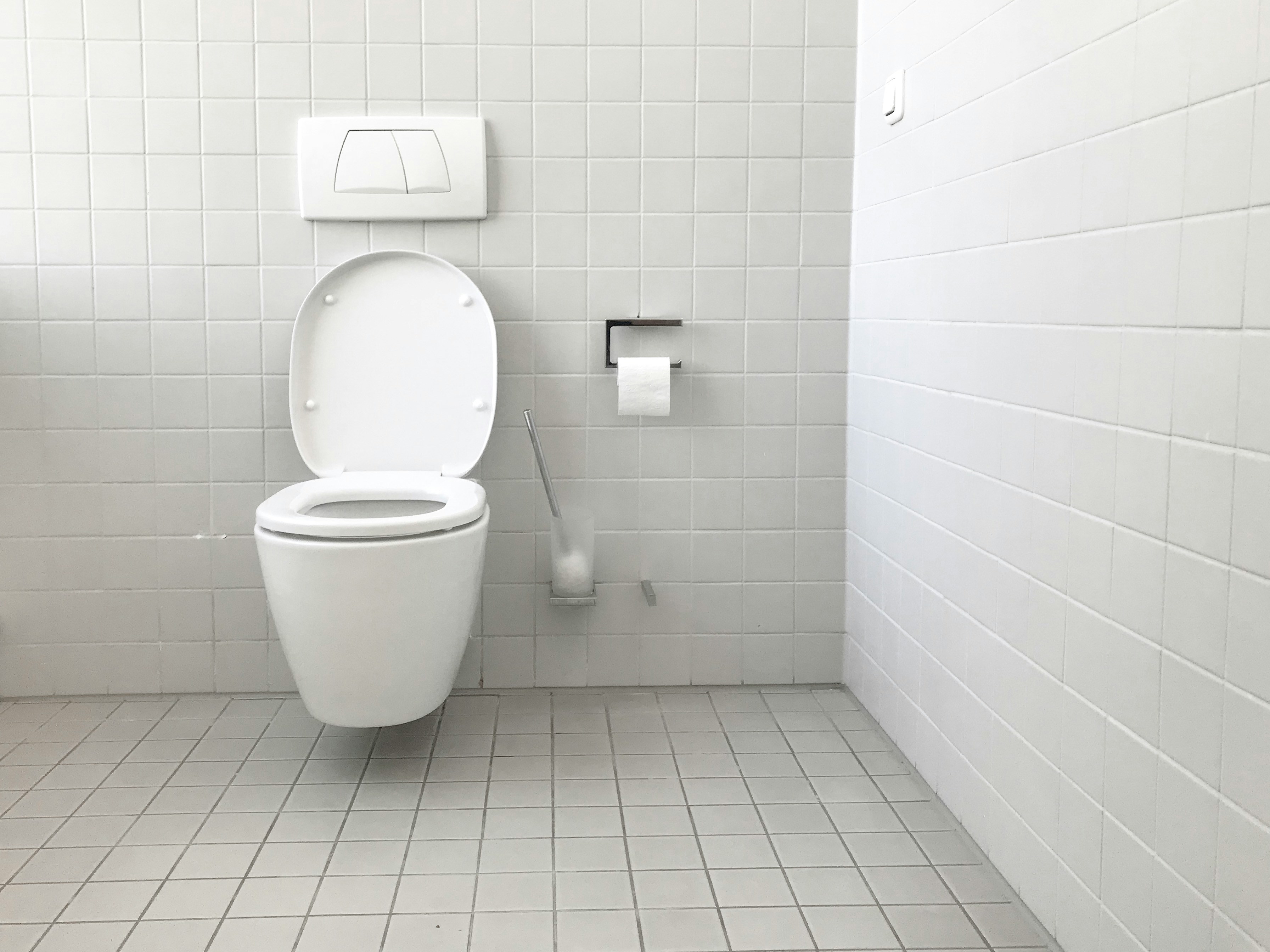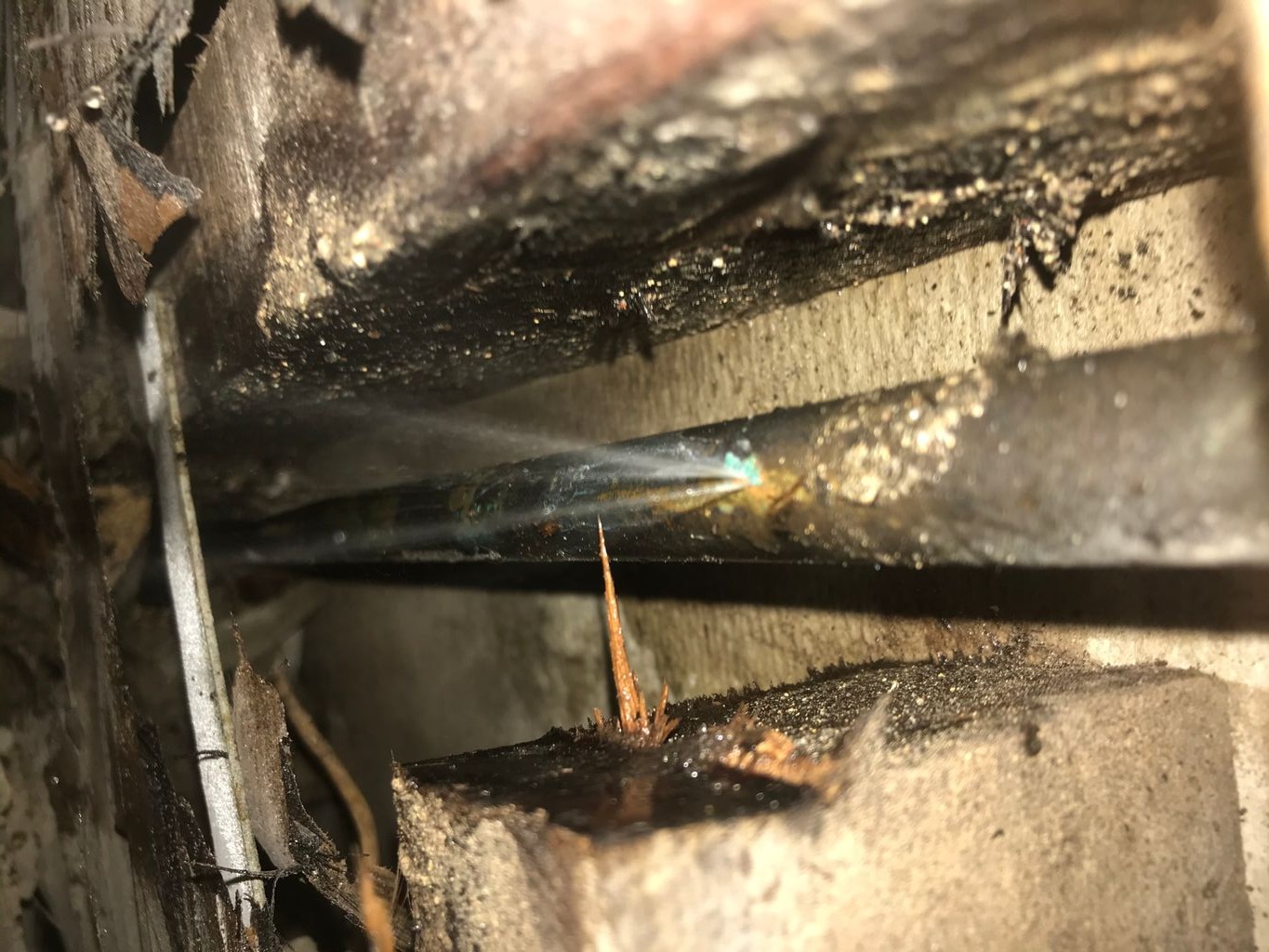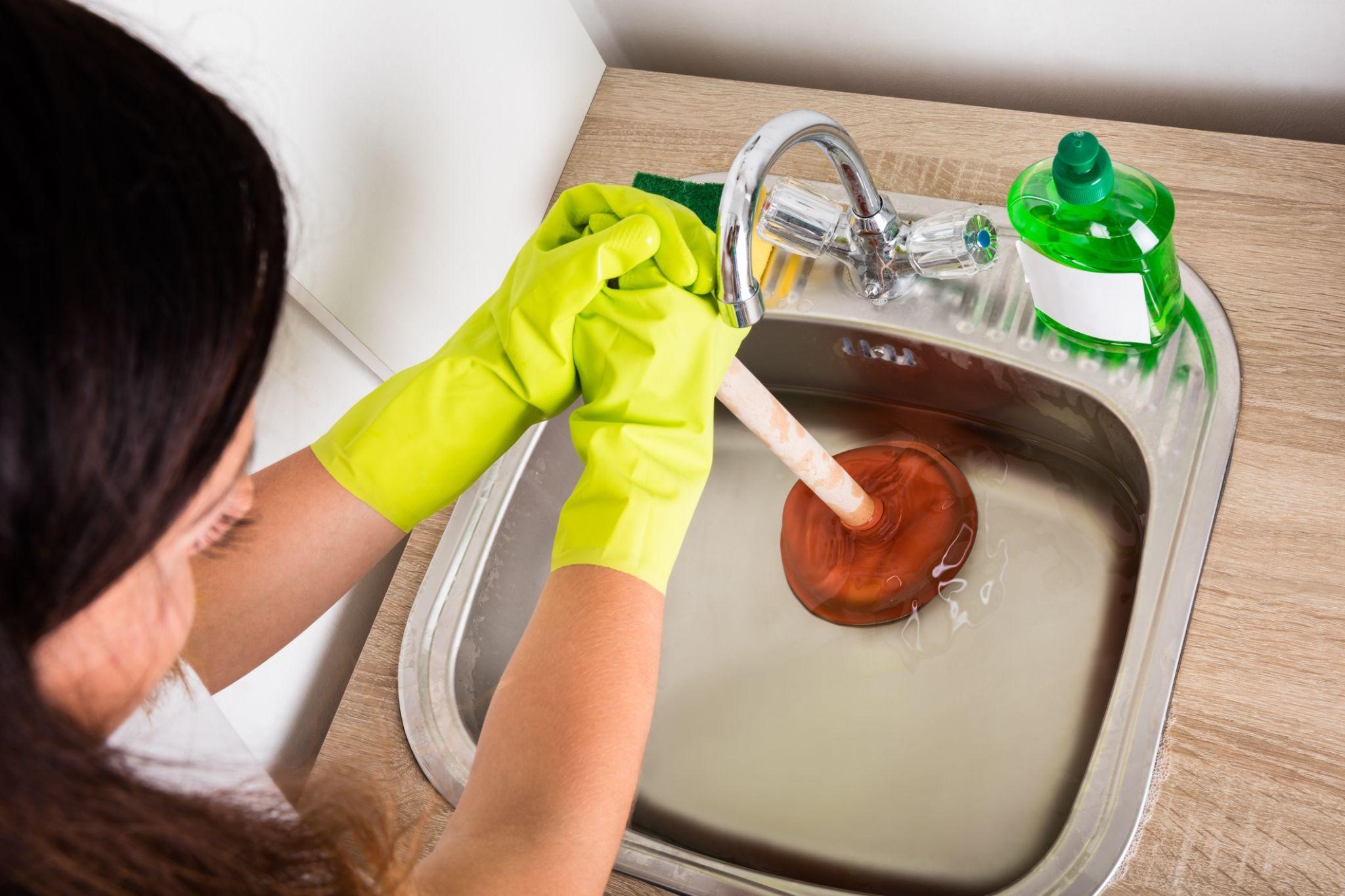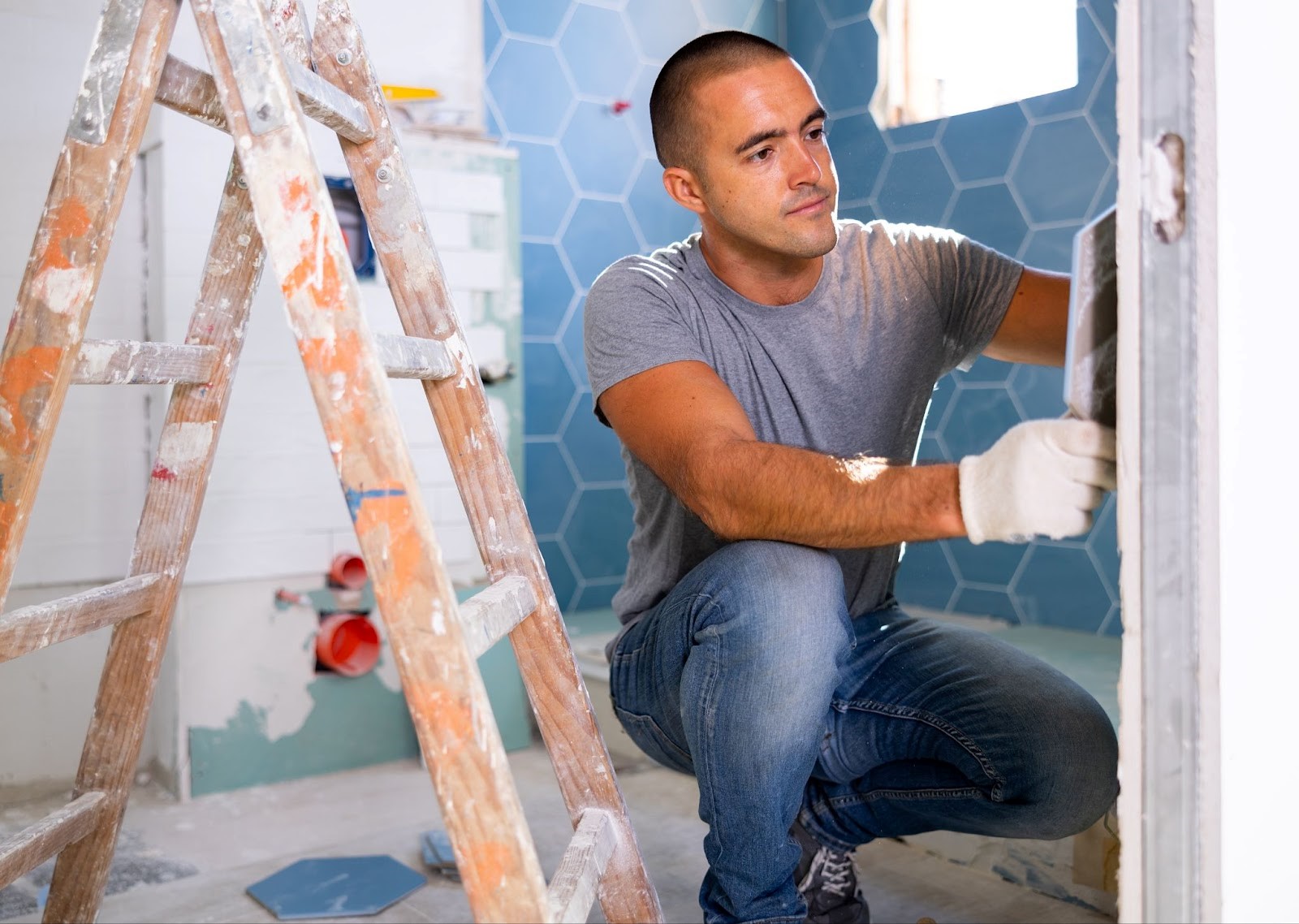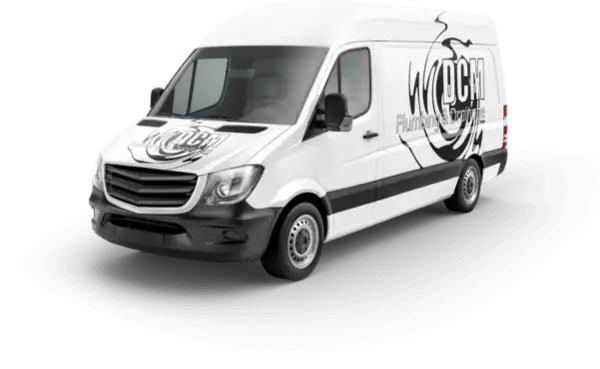In this article, we’ll walk you through how to clear a blocked drain, as well as some of the common causes and how to prevent a drain from clogging again.
When unblocking a drain these are the first things you should try:
- Pour boiling water down the sink
- Use a natural cleaner like a mix of bicarb and vinegar
- If that doesn’t work, you can try using a stronger chemical cleaner
- Plungers are also highly effective
- Unbent wire hangers can also be effective at physically pushing through a clog
If that doesn’t work then call a blocked drains expert like DCM Plumbing.
Now, we’ll look at the causes of and solutions to your blocked drains in a little more detail.
DCM Plumbing is a leading Gold Coast plumber and blocked drains expert. If you need plumbing services of any kind, contact us today.
What Causes Blocked Drains?
Before learning how to clear a blocked drain, you need to figure out the cause. There are many causes of blocked drains, and usually, a drain gets blocked after a couple of causes work in conjunction and exacerbate one another. The various causes of the clogs will vary depending on whether you have a blocked drain in the kitchen sink, bathtub, shower, or toilet.
Grease or Cooking Oil
Too much grease or cooking oil isn’t just bad for your heart, it’s also bad for your pipes. Due to its sticky nature, cooking oil can attach itself to the sides of a pipe when being washed down, eventually leading to a drain clog.
How to prevent it
To prevent oil from blocking your drain, try to avoid pouring grease and oil down your drain altogether. To dispose of the oil, you can place it in a container and dispose of it in the rubbish instead. If you must dispose of oil in your kitchen sink, run hot water down the sink with some dishwashing liquid while you pour the fats down the drain, so they don’t solidify. Keep the hot water running for 30 seconds to a minute after you’ve finished pouring the oil down the sink.
Hair
A few strands of hair going down a drain aren’t a problem, but once they start building up, they can become entangled and lead to a serious clog in your shower drain or basin.
How to prevent it
To prevent hair from clogging your drain, there are a few things you can do:
- Try brushing your hair before getting in the shower. This can help to get rid of any loose hair.
- Use a high-quality hair catcher to stop hair from going down the drain.
- Make sure to remove hair from the drain at the end of every bath or shower. Again, a drain can handle a few strands of hair every now and then, it’s when a big clump of hair gets washed down that you might have a blocked drain!
Wet wipes
Many people think that flushing toiletries such as baby wipes, nappies or toilet paper do not have any adverse effect on drains. Some wet wipes are even marketed as ‘flushable’, this is simply not true. They can even end up making ‘wet wipe islands‘ that can go so far as changing the course of rivers 🤢.
For instance, even flushing excess amounts of toilet paper can cause a clogged drain. This is because the pieces of paper can cling to anything in the drain resulting in a blocked drain. Wet wipes break down much slower than toilet paper and so you can imagine how much worse their effect can be on your drains.
Also, it should go without saying but flushing nappies is also a bad idea. When it expands, it becomes difficult for it to flow down the drain easily. So, we understand you can’t wait to get rid of those nappies, but you may just get a clogged drain as a result.
How to prevent it
This one is simple enough – just remember the mantra: the only thing that goes down the toilet is human waste toilet paper!
To find out more, read our blog on how to fix a leaky toilet.
Food Scraps
If you force too many food scraps down your sink, then you might need to unblock your drains frequently. Food scraps can accumulate over time, eventually causing a blockage.
How to prevent it
To prevent your kitchen sink from blocking due to food scraps, you should use a basket waste or sink strainer plug to stop food scraps from entering the sinkhole.
Trees and Leaves
Having plants around your house has its benefits, however, you need to find a way to control the leaves and branches falling off the trees. This will ensure that they do not end up in your drain. The accumulation of leaves and twigs in your drain can cause a blocked drain.
Tree and plant roots are the most common cause of blocked storm drains on the Gold Coast. This happens when thirsty plants and tree roots go looking for water and find a way into your underground pipes via a joint or crack in the pipework.
How to prevent it
Regular cleaning: Regularly cleaning the storm drains and the surrounding area can help to prevent the buildup of leaves and twigs.
Install leaf guards: Leaf guards can be installed over the storm drain to prevent leaves and twigs from getting inside.
Proper landscaping: Proper landscaping can also help to prevent leaves and twigs from getting into storm drains.
Mineral Build up
Calcium can build up in your pipes. This typically happens when you have hard water, i.e., water with a high mineral content from calcium, magnesium, or potassium. The hard water will usually build up in pipes and may eventually cause blockages.
How to prevent it
Use a water softener: A water softener is a device that removes minerals from hard water, which can reduce the amount of calcium build-up in your drain.
Use vinegar: Regularly pour vinegar down your drain to help dissolve calcium build-up. Mix one part vinegar with one part water and pour it down the drain, leaving it for about 30 minutes before flushing with hot water.
Use a drain strainer: Using a drain strainer can help prevent hair, soap, and other debris from clogging your drain, which can exacerbate calcium build-up.
Regularly clean your drains: Regularly cleaning your drains can help remove any calcium build-up before it becomes a problem. You can use a mixture of baking soda and vinegar, followed by hot water, to clean your drains.
Hire a professional: If you have a particularly stubborn calcium build-up, it may be necessary to hire a professional to clean your drains. A Gold Coast plumber can use special tools and techniques to remove the build-up and prevent future blockages.
Cat litter
Allowing cat litter to wash into the drain can lead to a clump. This clump can completely block a pipe or drain.
How to prevent it
Don’t flush cat litter down the toilet. Simple as that. Even if the litter is labelled as “flushable,” it’s still better to dispose of it in the trash. Flushing litter down the toilet can contribute to clogs in your plumbing and even in the wider city sewer system.
Use a litter mat. Placing a mat underneath your cat’s litter box can help catch any litter that your cat might track out of the box. This can prevent the litter from going down the drain in the first place.
Install a drain strainer. A drain strainer can be placed over your drain to catch any litter or other debris that might try to go down the drain. This can be especially helpful if you have multiple cats or if your cat has a tendency to kick litter out of the box.
Clean your drain regularly. Even if you take steps to prevent litter from going down the drain, some small particles may still make their way through.
How to Clear Blocked Drains
Now that we know what could cause blocked drains, let’s find out how to clear blocked drains.
There are various methods you can use to unblock drains. These procedures are, however, not foolproof. Depending on the extent and cause of the clogged drain, they may not work.
In cases like that, it’s always best to reach out to a blocked drains expert. You don’t want to turn a messy (and most likely stinky) situation into an even messier one.
So, here are some tips to help with minor blockages.
Boiling Water
One of the simplest ways to unblock drains is to use boiling water. Using this method requires pouring the boiling water into the sinkhole, toilet bowl, e.t.c. Boiling water can break down most clumps made up of items like soaps and food scraps.
To make this method even more effective, you can mix the boiling water with detergent. However, if you have a PVC pipe, then you should opt for hot water rather than boiling water.
Natural Cleaners
To unblock drains, you can also use a mixture of bicarbonate of soda and vinegar. Combine these items into boiling water for more effectiveness, and then pour the mixture down the drain.
This method will not be effective if a hard object is the cause of the blockage.
Caustic Cleaners
You can unblock drains with a caustic cleaner, but you have to be careful. When using a caustic cleaner, you will need to pour it into the blocked drain and leave it for a specific time, then flush with cold water.
Caustic cleaners can dissolve organic materials such as hair and food scraps. You should avoid using a caustic cleaner if you have a PVC pipe, old pipes, or pipes with glue in their makeup as it might do more harm than good.
Plungers
The trusty plunger is one of the most effective ways to unblock drains. All you need to do is to get a plunger that properly seals around a drainage hole, and apply short bursts of pressure.
Applying these short bursts of pressure can dislodge blockages and help to unblock your pipes. It’s a cost-effective and simple solution to what can be a serious problem!
Wire Hanger
You can use a wire hanger to unblock drains. You only need to unbend the hanger and make a small hook at one of its ends. You can then insert it into the drain to fish out any object causing a blockage. However, this method is only effective for minor blockages.
Blocked Drains FAQs
Can coffee grounds block drains?
When coffee grounds are washed down the drain, they don’t dissolve like other substances such as soap or shampoo. Instead, they can build up in your pipes and create a thick, sludgy mess that traps other debris that flows through the drain. This can eventually lead to a complete blockage, leaving you with a sink or shower that won’t drain properly (sorry to say your coffee face scrub may be a bad idea!).
But fear not! There are ways to prevent this from happening.
You can dispose of your coffee grounds by throwing them in the trash or composting them instead of washing them down the drain. Another helpful tip is to use an Insinkerator, which will catch any stray coffee grounds and prevent them from causing any plumbing problems.
So next time you’re enjoying your morning cup of caffeinated goodness, be sure to dispose of those coffee grounds properly and avoid a plumbing disaster!
Can hair block drains?
Yes, absolutely. As outlined above, hair is one of the most common causes of blocked drains. Once hair accumulates in a drain it essentially becomes a web that entangles anything else that might go down the drain. So be careful! You have been warned…
Can oil block drains?
Yes, oil can block drains, as outlined above.
When oil is poured down a drain, it can solidify and congeal as it cools, forming a sticky and thick mass that can block the flow of water through the drain. This can cause the drain to become clogged and prevent water from draining properly. Even worse are other cooking fats such as butter, lard, margarine, or coconut oil, that might be solid at room temperature!
Furthermore, oil in a drain also attracts other materials like dirt, hair, and food particles, which can become stuck to the oil and exacerbate the clog. Over time, this can lead to a complete blockage of the drain, which may require professional plumbing services to resolve (and if you need a blocked drain expert, you know who to call).
To prevent oil from blocking your drains, it’s important to dispose of oil properly. Don’t pour oil down the drain or toilet, but instead collect it in a container and dispose of it in the general waste bin. You can also consider recycling used cooking oil, which can be turned into biodiesel or other useful products.
Can tea leaves block drains?
Tea leaves are small in size and can often pass through drains without causing any major blockage. However, if you regularly dispose of a large amount of tea leaves down the drain, they can accumulate and combine with other materials, such as grease or hair, to create a blockage in your pipes.
To prevent this, it’s best to dispose of your tea leaves in the trash or compost instead of pouring them down the drain. Additionally, you can use a strainer or a mesh filter to catch any loose tea leaves before they enter the drain.
Need Help Clearing a Blocked Drain?
Blocked drains are a pain, especially when you’ve done everything you can to unblock them. What happens then? Well, you should call DCM Plumbing & Drainage if you’re on the Gold Coast!
As professional plumbers, we’ve been clearing blocked drains on the Gold Coast for almost 20 years. And we not only have the skills and experience, but we also have state-of-the-art technology to clear up even the most difficult of clogged drains.

